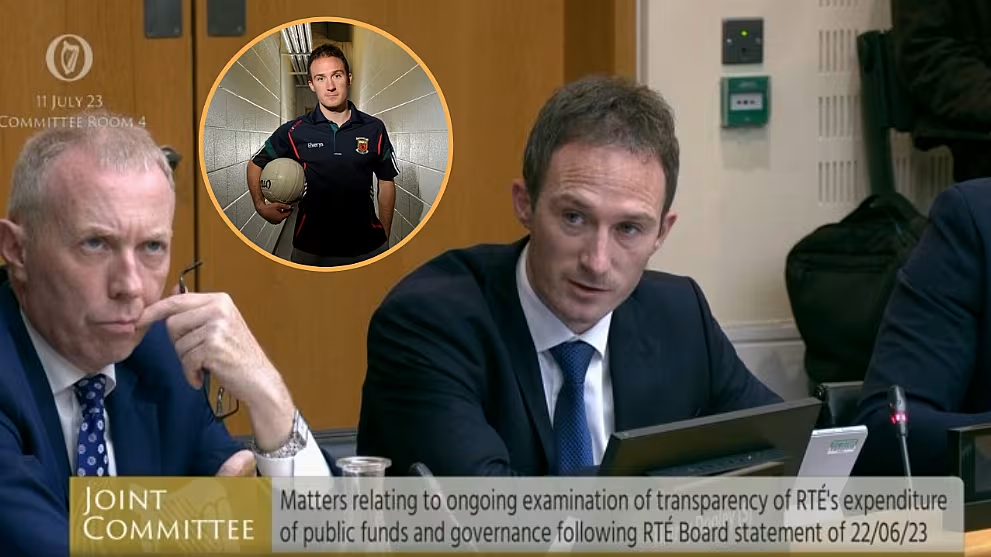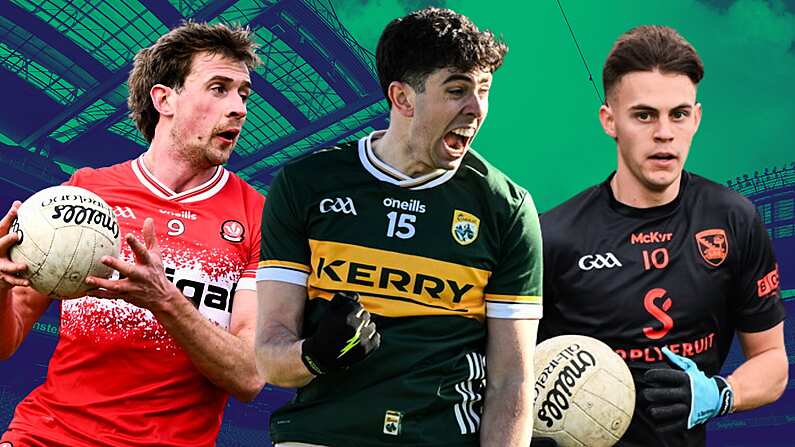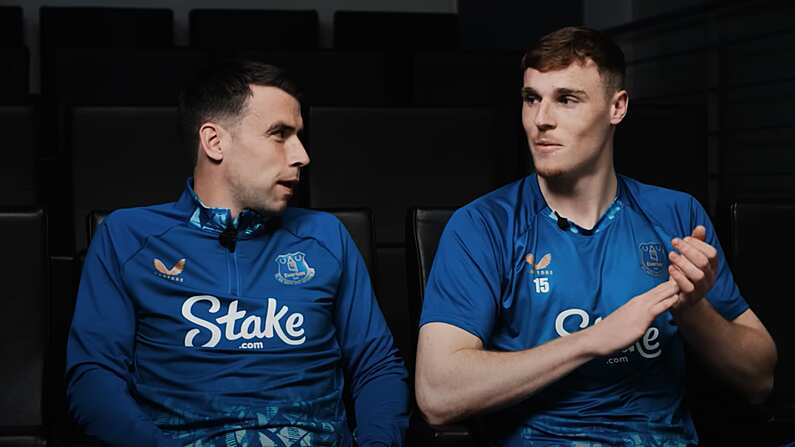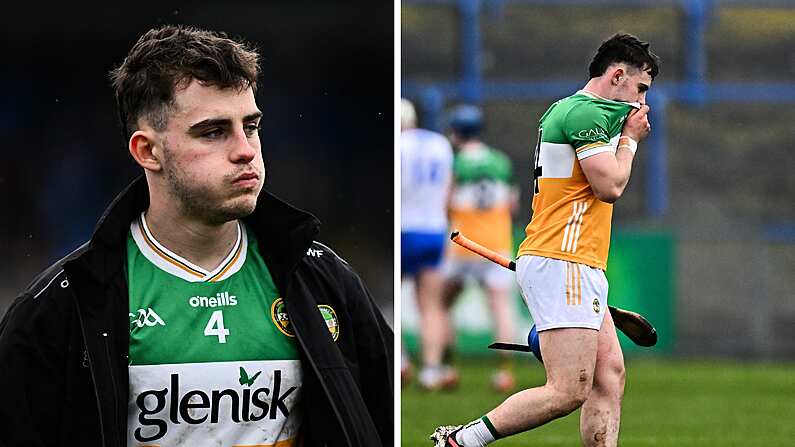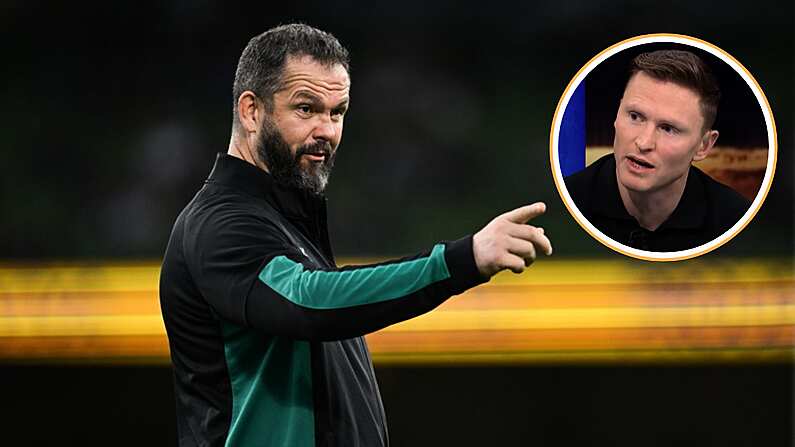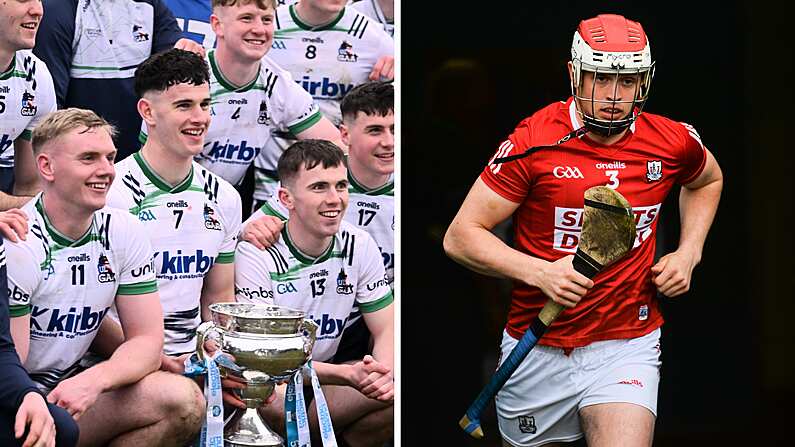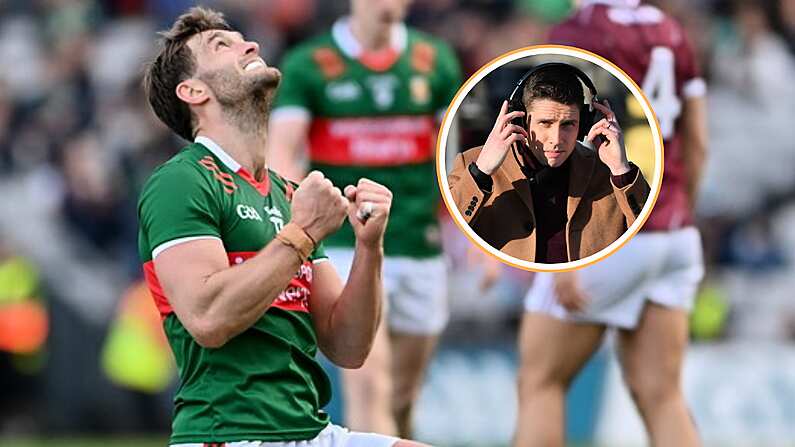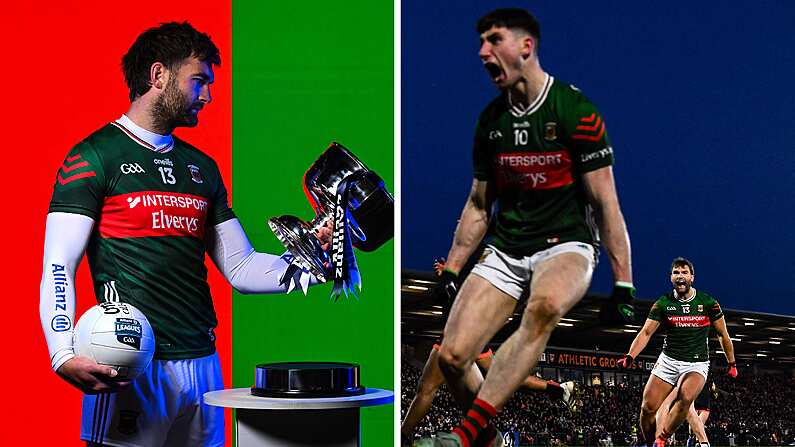The GAA world loves nothing more than a good saga.
Say what you will about the GAA, but no Irish sport can compete with its ability to manufacture intense and regular psychodramas. As we trudge through the continuing and tiring GAAGO debate/controversy/saga/whatever you want to call it, we've decided to look back on some of our favourites from down through the years.
Here's our Top 10 - would you have included anything we've missed?
GREATEST GAA SAGAS
Honourable mention: Newbridge Or Nowhere (2017); Tyrone's covid outbreak (2022)
10 - Diarmuid Connolly Suspension Appeal, Episode I
Not a very long time ago, in a galaxy not very far away - this strand of reality, in fact, in which Mayo still haven't won an All-Ireland - a red card in a drawn All-Ireland semi-final, they were briefly offered A New Hop- (enough -Ed).
Ok. Diarmuid Connolly was sent-off for striking Lee Keegan in 2015, and given a one-match ban, meaning he would miss the replay the following Saturday. He looked certain to miss out after he lost his appeal against his one-match ban. That result came through in the early hours of Friday morning, with the game fixed for that Saturday.
Having failed to hear what he wanted from the Central Hearings Committee and the Central Appeals Committee, Connolly then pursued the appeal with the independent Disputes Resolution Authority.
Extraordinarily, they cleared him to play in the All-Ireland semi-final, hours before throw-in, citing a lack of fair procedure afforded to Connolly in the defence process. It was hugely controversial, and not unanimous: it was the first split decision in the DRA's then ten-year history.
Connolly did not score in the replay, which Dublin won 3-15 to 1-14, to once again acquaint Mayo with what is now their condition: deep September pain.
(Episode II concerned his suspension for pushing a match official against Carlow in 2017.)
9 - The Ousting of Anthony Cunningham
Shakespeare and the GAA make easy bedfellows: some apologist or other will inevitably describe a player who faces media scrutiny over a legitimate transgression as "more sinned against than sinning", while in no sport does discontent fester so uneasily across winter as in Gaelic games.
This proved fateful for Anthony Cunningham when in charge of the Galway hurlers, as he was the hoisted victim of a fall-out of Shakespearean proportions.
Cunningham had brought Galway to an All-Ireland final in 2015, suffering defeat to Kilkenny. He had been expected to remain on for the following year (confirmed on September 28), but for the Galway players to bring forward a vote of no confidence in their manager in early October.
Cunningham clung grimly on, with speculation about his future keeping the usually bare October news cycle burbling along. Finally, Cunningham stepped down on November 16, with a blistering denunciation of the players:
I believe the players are misguided in that they are not taking the views of their county on board. They, through their actions have shown scant respect for, and loyalty to the goodwill shown them by supporters, clubs and County GAA Committees and Management.
I contend it is unreasonable to express a lack of confidence in management - how else could we have reached a winning position in an All-Ireland Final last September?
I consider this a kangaroo court decision, led by a core group of players orchestrated with the help of others outside Galway, motivated by a desire to unjustly extend their lifespan as inter-county players, placing personal agendas over the greater good of Galway hurling.
Galway's subsequent summer was made far from glorious, losing the All-Ireland semi-final to Tipperary. Ultimately though, ending a drought of 29 years the following summer has lessened the scrutiny of this mutiny.
8 - The Wee/Royals Rumble - 2010 Leinster Final
Louth spread 53 years worth of Leinster Championship dreams across Croke Park in the 2010 Leinster final, and only had them trampled on them when Joe Sheridan used his hands.
Scores of Louth fans then trampled on the grass in protest at referee Martin Sludden's allowing Sheridan to carry the ball over the line for a late goal to flip the destination of the Leinster title. Sludden was harangued by Louth fans infiltrating the pitch, and needed the help of Gardaí to find the sanctity of the dressing room, and the fall-out continued for days. Louth manager and future Fine Gael (and later Independent) TD Peter Fitzpatrick told every microphone he could find that "at least Dick Turpin wore a mask."
The following day, the 320th anniversary of the Battle of the Boyne, Colm Keys memorably wrote in the Irish Independent that even that war "surely didn't throw up a talking point to match a Joe Sheridan goal that will have the counties divided by the same river at odds for years to come".
Louth's cries for a reply ultimately fell on deaf ears, with Meath portrayed as unsporting for failing to offer one. Meath's Nigel Crawford claimed that the GAA had abdicated responsibility and hung the players out to dry by even allowing that notion the oxygen to breathe. Joe Sheridan received hate mail, the media was mostly a series of frenzied denunciations of the fans' reaction to Sludden's error.
Meath went on to lose their All-Ireland quarter-final to Kildare. Dublin have won every Leinster title since, with Meath losing to them in five of the 11 finals. Louth, meanwhile, reached the Leinster final for the first time since that 2010 day this year, when they lost out to Dublin.
Referee Sludden hasn't been heard of often since, either.
7 - The Battle of Omagh - 2006
Mickey Harte would reflect afterward that if referee "Paddy Russell had been God Almighty he couldn't have refereed the game today". Representatives for the word "ill-tempered" would sue for damages if it were used to describe how this game erupted in the 2006 National League.
The game sparked with a skirmish within the opening four minutes, and then turned molten in the second-half, with an enormous melee, that spilled onto to the touchline. Paddy Russell described the atmosphere as "frightening", and flirted with abandoning the game.
Four players were sent off, with GAA president Seán Kelly saying after the game that the Central Disciplinary Committee (CDC) needed to investigate the issue as "a matter of urgency".
Ultimately, nine players were charged - five from Dublin, four from Tyrone - with bringing the game into disrepute, as were the county boards.
This dragged on until March, however, as both counties found loopholes in the disciplinary system to lift the suspensions - the CAC striking out the bans on the technicality that the CDC used video evidence while forming their ruling, which was then prohibited. The rules were then altered.
Dublin manager Paul Caffrey saw the benefit of the entire farrago, with his infamous 'Blue Book' hailing the brawl as "a day when we crossed the line together like a Dublin squad hasn't done in years".
6 - The Dublin/Meath Quadrilogy of 1991
The happier kind of saga. The Leinster championship is bereft of the kind of rivalry Dublin and Meath bestowed upon us in 1991. Italia '90 had challenged the primacy of Gaelic games in the country, with the Association pounding out some propaganda to wrestle back some eyeballs.
This saga had an infinitely bigger impact, and helped annex the summer for the GAA once again. Dublin and Meath gave us four sizzling summer games within a month to pretty much earn squatters rights in Croke Park.
This came as a result of the GAA's eventual taking a stride into the brave new liberal world of The Open Draw, and would end up boosting the coffers of the Leinster Council to a level hitherto unimagined.
The saga showed Meath at their best, a side not beaten, to misquote Johnny Pilkington, until The Sunday Game was over. Dublin had been a position to win them all, bar the second, but for Meath to gnaw away at their composure.
Meath saved the best for last. A goal down with the clock ticking out, they reeled off a miracle Kevin Foley goal and a point from David Beggy, with Jack Sheedy breaking the summer spell by pulling a late free-kick wide.
Meath would absurdly go on to draw with Wicklow in the next round, and lost an All-Ireland final to Down having played nine times to get there. In the considerable tapestry woven in Sean Boylan's memory, this, he said, is what sticks out the most.
READ HERE: Ex-Kilkenny Keeper Recalls How Cody Binned Him For Eoin Murphy
5 - Páidí O'Se calls Kerry fans animals
Kerry has always been among the more lyrical of places, and usually used that gift to articulate their exceptionalism. This, from John B. Keane:
Being born a Kerryman, in my opinion, is the greatest gift that God can bestow on any man.
When you belong to Kerry you know you have a head start on the other fellow...In belonging to Kerry, you belong to the elements. You belong to the spheres spinning in the heavens.
In 2003, the great Páidí O'Sé was guilty of lyrical shortcomings. After the Kingdom felt the wrath of the Armagh/Tyrone coup, the Kerry manager remarked in a Sunday Independent interview on a holiday to Cape Town that Kerry fans were "the roughest type of fucking animals you could ever deal with, and you can print that".
This was O'Sé's way of articulating that Kerry fans were more demanding than most, but his turn of phrase caused the mother of all storms back home.
Micheal O'Muircheartaigh wonderfully dismissed it as "winter talk", but that did nothing to cease debate.
The Kerry County Board issued a statement distancing themselves from O'Sé's remarks as GAA president-elect Seán Kelly anticipated a public apology, as Páidí found himself splashed across every newspaper in the land. He arranged an interview with Marty Morrissey to explain and apologise, seeking the counsel of Charles Haughey before doing so.
In the end, he remained on as Kerry manager but left against his will after the autumn defeat to Tyrone, which perhaps vindicates the sentiment of the infamous declaration.
4 - The Cork Strikes
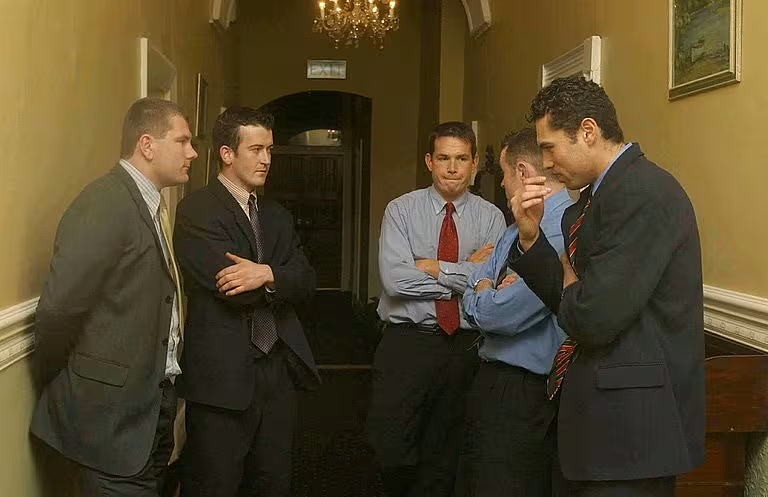
By the meagre returns of this decade, the 2000s resemble a glorious era for Cork hurling and football, featuring two All-Irelands (the footballers would win in 2010) and three players' strikes. It began in 2002, when the Cork hurlers went on strike in response to what they saw as insufficient investment from the Cork County Board: the absence of a doctor to treat a player wounded in a clash of heads in a game in Derry the boiling point for a dispute that simmered over training facilities.
A second strike then occurred in 2007, as the Cork footballers fought against the County Board's power to appoint selectors over the manager's head, which led to Billy Morgan's resignation. The players refused to play under Teddy Holland, and officially went on strike in December.
Following resolution talks with Kieran Mulvey of the Labour Relations Committee, and comment from figures as varied as Man United fan Bertie Ahern and by-then-non-United fan Roy Keane, the players ended the strike in February, after 95 days. Teddy Holland stood down.
Things erupted yet again a year later: the hurlers went on strike again, citing the County Board's failure to implement the changes agreed after the previous strikes.
This proved bitter: the Cork management began the league by fielding weakened sides without a player from the 2008 panel as the footballers threatened to strike if there was no resolution by the end of the league. Just 600 people turned up to watch a league defeat to Galway, whereas 10,000 had marched in support of the hurlers.
Eventually, Gerald McCarthy stood down in March, having allegedly been subject to death threats. The hurlers returned to play, but are still waiting on another All-Ireland title 15 years on.
3 - The Tony Keady Affair
We sadly lost Tony Keady in 2017, but as well as being an all-time great hurler, Keady once found himself also caught up in one of the GAA's biggest sagas 'The Tony Keady Affair'. The hurler of the year in 1988, Keady then went on a holiday to America, to play for Laois against Tipperary in an exhibition game.
He was told he could play, only to arrive home to pronouncements by the GAA that he had broken the rules by playing, and was promptly banned for a year.
Keady was the only high profile player ever suspended under this law, even though the practice was rampant in the 70s and 80s. Tipperary's Paul Delaney had committed exactly the same 'crime' that summer and yet played the semi-final against Galway. (The Tipp management, concerned that issues would arise following the Keady saga, dropped him for the final against Antrim).
This story travelled from one side of newspapers to the other when Cyril Farrell threatened to pull Galway out of the championship in protest. The appeal was notable for eschewing traditional competitive benefits. Tipperary, who had most to gain from Keady's suspension, voted for his reinstatement whereas the county board delegates from the other four Connacht counties all voted against him, despite the fact that none even played hurling at an elite level.
Ultimately, Galway's push for three-in-a-row without Keady was exploited by Tipperary, who went on to win the final comfortably against Antrim. Keady returned the following year, and retired following the All-Ireland final defeat to Cork.
2 - The Unbearable Condition of Mayo
The political adage is 'when you're explaining, you're losing', but Mayo have now lost so often they have resorted to desperate explanations: the notional curse of '51, and even nonsense like Aidan O'Shea's participation in The Toughest Trade have been cited as reasons why Mayo have not won Sam Maguire since 1951.
These are irrational explanations, but it is natural to apply such fantasy to the twisted logic of Mayo's record: their ability to lose is nigh-on unfathomable.
No county has lost the showpiece final so often: 11 since and including 1989, two of them after a replay. The run of the last decade in particular has been astonishing.
Undoubtedly the best Mayo team of all time, they've reached six All-Ireland finals in ten years, losing them all. In between, they lost a further three more semi-finals, all to the eventual winner, and two after a replay. They hit their peak right at the peak of the greatest team of all time and lost three All-Ireland finals in two years to them by a combined two points. 2016 saw the absurdity of Mayo players outscore Dublin yet end up level, scoring two (!) own goals in the first-half of the drawn final, before losing the replay by a point.
When they (naturally) became the team to end Dublin's dominance by becoming the first team to beat them since 2014 earlier this year, they had the misfortune to meet in the semi-final, rather than final. Tyrone put pay to any notions that the job was finally done.
ESPN's 30-for-30 should decamp to Mayo every summer, for there they will see them stagger back beaten, but knowing that their unique torment is merely information shaping the following year. How long they can keep going to the well is unclear, but surely there'll be a joyous July soon, won't there?
As Joe Brolly said in exasperation on RTE a number of years ago, we all need Mayo to win an All-Ireland so we can get on with our lives.
1 - The Long Hot Summer of 1998
The saga that encapsulated the duality of that word, as two counties rife with controversy found themselves together to produce a memorable three-game series, that was itself punctuated by contention.
Let's start with Clare. Gunning for a third All-Ireland in four years under Ger Loughnane, the Banner met Waterford in the Munster final. The Clare players had their medal haul burnished but had partly seen the occasion blemished: it was ill-tempered, with Brian Lohan and Michaél White both sent-off. Colin Lynch, meanwhile, was banned for three months having struck Tony Browne with his hurl.
This suspension led Loughnane to give a Clare FM interview of such fury that it seemed he had intimately acquainted himself with even the endnotes, indices, and early drafts of the Riot Act. It lasted 70 minutes, accusing the Munster Council of treating Clare "like criminals", while also throwing about the word "Gestapo". Loughnane also went on RTE to claim that Lynch's fundamental human rights were threatened by what he saw as an unfair process.
Lynch was nonetheless banned, and the farrago then took a turn on a farcical indignity, as Loughnane confronted Marty Morrissey over his wrongly reporting that Lynch's grandmother had died during the appeals process. A bellicose Loughnane then confronted Morrissey and explained that the switching off of her life support machine was good news, rather than bad.
Meanwhile, the Offaly players ousted their manager Babs Keating, who had referred to them as "sheep in a heap" after a Leinster defeat to Kilkenny. While the back-door offered a reprieve, Johnny Pilkington voiced his fury at Keating, accusing him of abandoning Offaly's ground hurling while rubbishing his claim that his players were not disappointed to lose to Kilkenny.
He went, with one Offaly fan remarking that he had left "through illness and fatigue: the Offaly players were sick and tired of him".
Eventually, Clare and Offaly met in the All-Ireland semi-final, with Lynch and Keating among the thousands of gripped observers. the first two games both went to a replay: the first ended as level; the second ended early.
With Clare three points up with three minutes left, referee Jimmy Cooney blew the final whistle early. He needed a Garda escort to leave a pitch soon festooned with angry Offaly fans. The GAA ordered a replay, which Offaly won in Thurles.
They went on to win the All-Ireland, but even in defeat, Loughnane's Clare told part of the finest GAA saga ever told.
Honourable mentions: Newbridge or Nowhere, The 2006 Australian Rules erupts in violence; Seanie Johnston plays hurling in Kildare; Paul Galvin affronts Paddy Russell's notebook.










